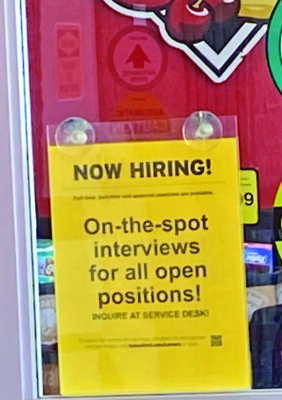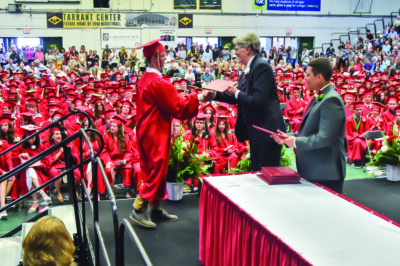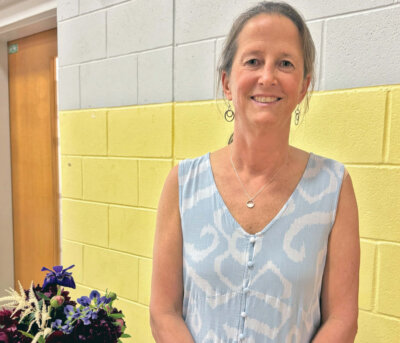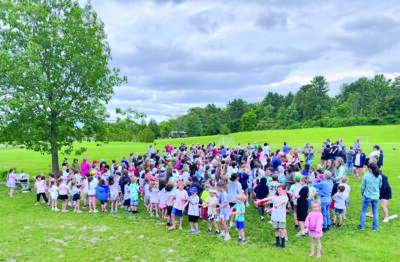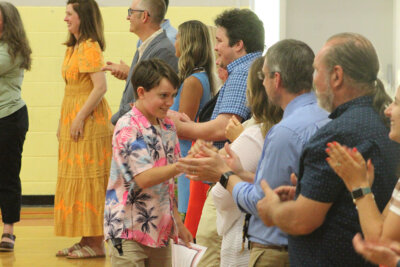A degree doesn’t guarantee a job; a good interview can seal the deal
The cost of college is nearing $100,000 a year for some undergraduate schools; yet, there is no guarantee of a job after graduation. Forbes reported this February that less than half of graduates feel optimistic with their career prospects. Nearly 60 percent of hiring managers say that college graduates are unprepared for the workforce. How can a student become confident in their abilities and build confidence with future employers?
Research findings show that 40 percent of college students feel that college did not teach them skills to navigate the work force emotionally or mentally. Reaching out to ask for feedback and pushing out of one’s comfort zone are experiences that are learned in college. However, students need to take additional initiative to meet with professors, advisers and career counselors to perfect these skills.
Advocating for oneself and being patient to improve over time is part of adult growth. Professional skills are formed by learning from experiences. Top grades and professor recommendations are just one piece of the professional puzzle. Joining academic clubs, practicing mock interviews and participating in networking events are part of the college process that students need to add to their schedule.
Nearly 40 percent of employers have reported that they avoid hiring recent college graduates. Employer surveys reveal that many recent graduates fail to hold eye contact during interviews and have unrealistic salary expectations. By not doing their homework in being enthused for an interview or understanding entry-level salary ranges, the student may not appear to be a team player or show a desire to build skills on the job.
Employers scan LinkedIn for keywords that match academic experiences with job responsibilities. Being granted an interview shows that the student made the first cut. However, it is the interview process that sheds insight into the applicant’s personality and character traits. In other words, many people can be qualified for a position, but it is the human elements that bond people together.
Shifting an interview into a conversation is an art. This is like writing an essay: share a story to bring the topic to life. The student is the hero who interacts with supporting characters.
Be sure to research the company, culture and position. Let your knowledge and enthusiasm for contributing to the mission and team shine through.
Do not list attributes in an interview. Your resume has this covered. The interviewer is evaluating how the student approached a range of tasks, overcame difficulties and moved the process forward. People remember how you make them feel with your communication style and reflection process.
Typical interview questions ask about skills to do the work and lessons learned from various experiences. For example, illustrating teamwork can explain how the applicant interacted with people who have different skills, backgrounds and perspectives.
During the interview, many employers mention that recent graduates do not dress appropriately, refuse to turn on their Zoom camera, or even bring their parents to the interview! First impressions are memorable: it is hard to overcome an awkward interaction.
Wearing business-casual attire is a safe bet to help the applicant get in the mindset of an important discussion and shows the potential employer that the meeting is a priority from a typical interaction. Researching online resources can provide dress code options to feel comfortable and at ease in the professional environment. The little details can make a big difference.
Reaching out to schedule an informational interview with neighbors or colleagues who work in fields of interest is a great first start to become familiar with the social dynamic of the work environment. For example, if a student is interested in becoming a journalist, contact local newspaper editors and writers. The informal meeting can ask about their experiences and thoughts on the future. People are usually open to passing forward information to future professionals.
Be sure to write a thank you note after the meeting. Reflect on an anecdote from the conversation and why it was a meaningful discussion. Personalization shows a greater sense of engagement and interest. Each meeting should build confidence with the interview process, while adjusting responses from mistakes.
College includes mastering the skills to perform tasks and work as a team. Building professional networks can bridge academic knowledge to the real world.
Stellar interviews are the catalyst that can tip a candidate into the winning half of job seekers.
(Margo Bartsch founded College Essay Coach, a full-service college admission business, and has been an adjunct professor in business at Champlain College and at Middlebury College.)
Related Stories
Popular Stories
If you enjoy The Charlotte News, please consider making a donation. Your gift will help us produce more stories like this. The majority of our budget comes from charitable contributions. Your gift helps sustain The Charlotte News, keeping it a free service for everyone in town. Thank you.
Andrew Zehner, Board Chair




